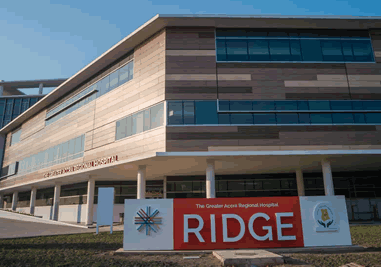
By Isaac Arkoh, GNA
Cape Coast, Dec. 05, GNA - Dr Marc Kwame Dzradosi, the Board Chairman for Diabetes Youth Care (DTC), has called on the Government to decentralise care and treatment of non-communicable diseases (NCDs) with the right systems, structures and functional logistics.
This is to ensure that all persons are given equal medical attention regardless of one's location to ameliorate the plight of afflicted persons with timely, reliable treatment and care services.
"As a nation, a lot of health specialist care services are focused at tertiary health institutions and regional facilities to the disadvantage of other decentralised health centres where their services are needed most."
"This will make health centres accessible to many suffering from the various chronic NCDs - diabetes, cancer, osteoporosis, chronic lung disease, stroke, and heart diseases to have ease in service accessibility and reliability.”
Dr Dzradosi made the appeal in an interview with the Ghana News Agency (GNA) on the sidelines of a six-day capacity building workshop in Cape Coast for 160 diabetic children and parents drawn from the Region.
The forum, geared towards building the capacity of participants on how to manage the disease, was put together by Diabetes Youth Care and Sonia and Nabeta Foundation based in Uganda.
The participants were taken through the Nature of Diabetes, Causes, Symptoms, Management, Complications and Treatment Modules.
To unearth their talents, sporting and reality shows were organised for them.
Dr Dzradosi further noted that effective decentralisation of NCDs care would significantly improve care, access, travel cost and distance during emergency health situations, especially in the difficult to reach communities.
He said major causes of death in Ghana included a combination of communicable, chronic and NCDs, adding that NCDs accounted for 71 per cent of all deaths globally.
According to the Ghana non-communicable Diseases Alliance (GhNCDA), about 94,400 people died through such diseases every year in the country.
He expressed concern over the consumption of alcoholic beverages, smoking and the shift in preference for junk food, compounded sedentary lifestyles and failure to exercise regularly, saying such lifestyles had led to increased deaths from NCDs in the country.
In that regard, Dr Dzradosi advocated for more awareness creation and change in lifestyles, especially among the youth.
Dr Martha Ampadu, a Diabetes Specialist, who facilitated the programme, said the causes of diabetes depended on one's genetic makeup, family history, health and environmental factors, adding that, there was no common diabetes cause that fits a particular type of diabetes.
Dr Ampadu enumerated some of the factors that had high incidents of diabetes to include increase in population growth and ageing, unhealthy eating habits, less physical activity, alcohol and tobacco usage.
The signs and symptoms include frequent urination, especially at night, excessive thirst, loss of weight, dizziness and trembling, blurred vision as well as tiredness and poor concentration.
It has serious complications such as high blood pressure from high glucose levels and if not diagnosed early and treated properly could damage the eye, kidneys and also lead to amputation, stroke and heart attack.
Ms Vivian Nabela, Founder of Sonia Nabeta Foundation, lauded the collaboration as key strategy to effectively reduce the increasing spate of children getting NCDs and asked children to adhere to the advice to enable them to prolong their lifespan and contribute their quota to personal and national development.
GNA
Read Full Story














Facebook
Twitter
Pinterest
Instagram
Google+
YouTube
LinkedIn
RSS